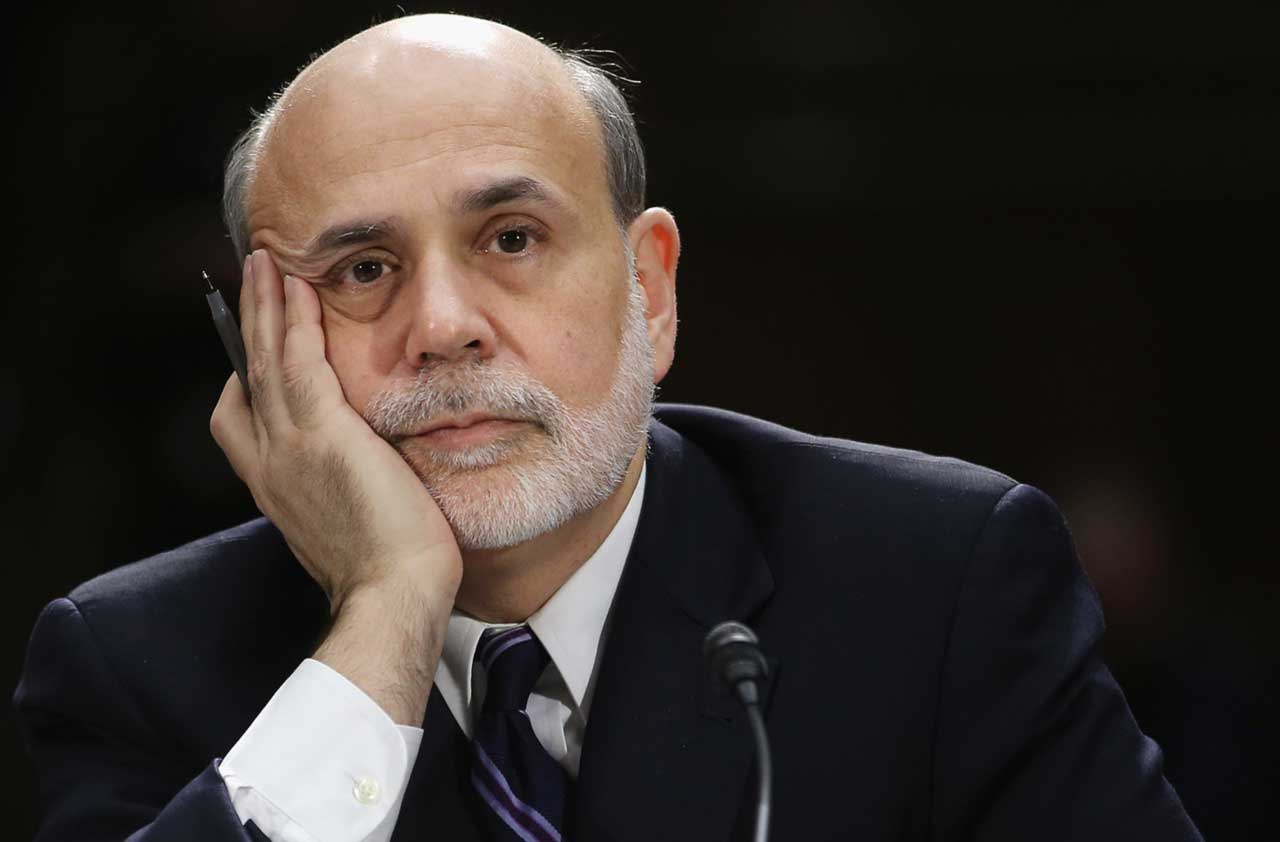Fear the Deficit?
Stocks are the ideal investment vehicle to ride out higher inflation and interest rates.

Profit and prosper with the best of Kiplinger's advice on investing, taxes, retirement, personal finance and much more. Delivered daily. Enter your email in the box and click Sign Me Up.
You are now subscribed
Your newsletter sign-up was successful
Want to add more newsletters?

Delivered daily
Kiplinger Today
Profit and prosper with the best of Kiplinger's advice on investing, taxes, retirement, personal finance and much more delivered daily. Smart money moves start here.

Sent five days a week
Kiplinger A Step Ahead
Get practical help to make better financial decisions in your everyday life, from spending to savings on top deals.

Delivered daily
Kiplinger Closing Bell
Get today's biggest financial and investing headlines delivered to your inbox every day the U.S. stock market is open.

Sent twice a week
Kiplinger Adviser Intel
Financial pros across the country share best practices and fresh tactics to preserve and grow your wealth.

Delivered weekly
Kiplinger Tax Tips
Trim your federal and state tax bills with practical tax-planning and tax-cutting strategies.

Sent twice a week
Kiplinger Retirement Tips
Your twice-a-week guide to planning and enjoying a financially secure and richly rewarding retirement

Sent bimonthly.
Kiplinger Adviser Angle
Insights for advisers, wealth managers and other financial professionals.

Sent twice a week
Kiplinger Investing Weekly
Your twice-a-week roundup of promising stocks, funds, companies and industries you should consider, ones you should avoid, and why.

Sent weekly for six weeks
Kiplinger Invest for Retirement
Your step-by-step six-part series on how to invest for retirement, from devising a successful strategy to exactly which investments to choose.
You can scarcely listen to the news without being bombarded with dire predictions about the economic consequences of the current U.S. budget deficit. At a projected $1.6 trillion this year, it’s by far the largest, relative to the size of the economy, since World War II. And it has prompted some people to recommend that investors shun U.S. financial assets and plunge into gold, silver or assets from countries such as Germany, which has relatively small deficits and low inflation. Should investors follow this advice?
To answer that, we should consider the economic repercussions of an outsize deficit. Holding all other economic variables constant, a big budget deficit should result in higher interest rates because government debt competes with other debt, such as corporate bonds and mortgage securities. It could also mean higher inflation, if the Federal Reserve helps the government fund its debt by buying government bonds. That creates bank reserves that fuel spending.
But right now all other variables are not constant. Even as the public deficit is at a peak, private debt creation has been squelched by the recession and the collapse of the housing industry. Sitting on record cash balances, few corporations are issuing new bonds (see Cash-Rich Stocks to Buy Now). As a result, Americans who are trying to beef up their savings are finding that government securities are just about the only high-quality new issues they can buy. That’s one reason interest rates on government debt are so low, despite Uncle Sam’s insatiable appetite for borrowing and spending.
From just $107.88 $24.99 for Kiplinger Personal Finance
Become a smarter, better informed investor. Subscribe from just $107.88 $24.99, plus get up to 4 Special Issues

Sign up for Kiplinger’s Free Newsletters
Profit and prosper with the best of expert advice on investing, taxes, retirement, personal finance and more - straight to your e-mail.
Profit and prosper with the best of expert advice - straight to your e-mail.
This state of affairs can’t last long. As the economy improves, more companies will issue debt to fund new projects that will compete with government bonds, so interest rates will rise. Even though tax revenues will increase in an expanding economy, it’s almost inevitable that interest rates will go up over the next few years, and bond prices (which move in the opposite direction) will fall.
Inflation Outlook
What about the inflationary consequences of a large deficit? In the long run, deficits are inflationary if the central bank buys government debt, generating reserves that the banking industry then lends to others. But the U.S. is fortunate to have such a broad market for its bonds that the Fed is not forced to be the “lender of last resort” for the Treasury.
Nevertheless, one unusual aspect of the current U.S. budget deficit is that the Fed has been buying large quantities of government bonds as part of its “quantitative easing” policy. So far, these purchases haven’t been inflationary because most of the newly created reserves haven’t been loaned out by banks. But the Fed must withdraw these excess reserves at some point to defuse their inflationary potential. I believe the Fed will err on the side of providing too much stimulus, rather than too little, in the coming months. As a result, inflation over the next several years is likely to run modestly above the Fed’s unofficial 2% ceiling.
Rising inflation might seem to argue for investors to buy commodities, but I believe real assets will be disappointing investments. Commodities will do well if inflation reaches double digits, as it did in the 1970s. But with moderate inflation, commodities do not generate notably good returns, especially when gold, silver and many other commodities have already experienced big run-ups. Bonds of sound-money countries, such as Germany, are a choice, but their low interest rates aren’t attractive for investors.
Which assets fare best in times of moderate inflation? The answer is stocks. As I have written before, stocks are claims on real assets that rise in value with the general level of prices (see GOING LONG: Stocks Are the Best Inflation Hedge). Given their reasonable valuation and good dividend yield, they are the ideal investment vehicle to ride out higher inflation and interest rates.
Columnist Jeremy J. Siegel is a professor at the University of Pennsylvania’s Wharton School and the author of Stocks for the Long Run and The Future for Investors.
Profit and prosper with the best of Kiplinger's advice on investing, taxes, retirement, personal finance and much more. Delivered daily. Enter your email in the box and click Sign Me Up.

-
 Over 65? Here's What the New $6K 'Senior Deduction' Means for Medicare IRMAA Costs
Over 65? Here's What the New $6K 'Senior Deduction' Means for Medicare IRMAA CostsTax Breaks A new deduction for people over age 65 has some thinking about Medicare premiums and MAGI strategy.
-
 U.S. Congress to End Emergency Tax Bill Over $6,000 Senior Deduction and Tip, Overtime Tax Breaks in D.C.
U.S. Congress to End Emergency Tax Bill Over $6,000 Senior Deduction and Tip, Overtime Tax Breaks in D.C.Tax Law Here's how taxpayers can amend their already-filed income tax returns amid a potentially looming legal battle on Capitol Hill.
-
 5 Investing Rules You Can Steal From Millennials
5 Investing Rules You Can Steal From MillennialsMillennials are reshaping the investing landscape. See how the tech-savvy generation is approaching capital markets – and the strategies you can take from them.
-
 A Preview of the Fed Under Trump
A Preview of the Fed Under TrumpEconomic Forecasts John Taylor, a former Treasury official in the Bush administration, is a top candidate to replace Fed chair Janet Yellen.
-
 Investors, Don't Fear Higher Rates
Investors, Don't Fear Higher Ratesinvesting Although interest rates will rise modestly in coming months, that should not derail the bull market.
-
 Why Investors Shouldn't Be Afraid of Inflation
Why Investors Shouldn't Be Afraid of InflationEconomic Forecasts An inflation rate of 2% to 3% is good for stocks because it gives companies the power to raise prices, which helps boost profits.
-
 A Positive Outlook for U.S. Interest Rates
A Positive Outlook for U.S. Interest RatesEconomic Forecasts Instead of the threat of deflation from weak growth and falling prices, the U.S. is facing the opposite: accelerating inflation.
-
 Can the Fed Save the Stock Market?
Can the Fed Save the Stock Market?Markets In retrospect, it was ill-timed for the Federal Reserve to start hiking short-term interest rates. But that can easily be fixed.
-
 Bernanke's Ultimate Legacy
Bernanke's Ultimate Legacyinvesting The former Fed chairman's decisions in 2008 were an act of courage that averted an economic collapse far worse than we experienced.
-
 Worries About China’s Economy Are Overblown
Worries About China’s Economy Are OverblownEconomic Forecasts Among the consequences of China's slowdown: lower commodity prices, which actually benefit the U.S.
-
 Surviving the Greek Financial Crisis
Surviving the Greek Financial CrisisEconomic Forecasts Despite the recent friction, I believe the eurozone is stronger after putting down the Greek rebellion.